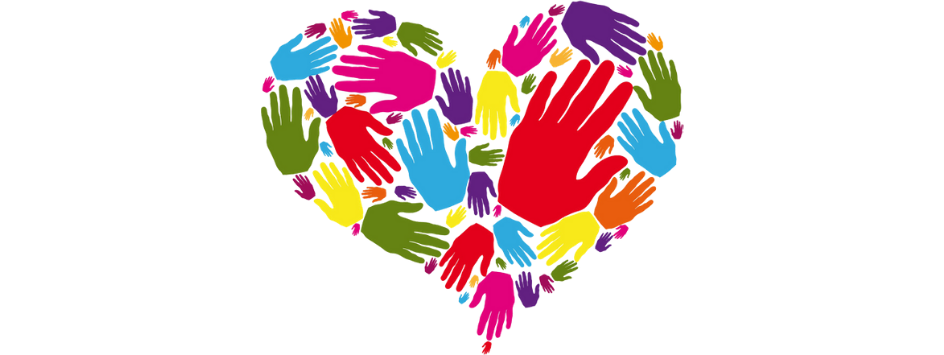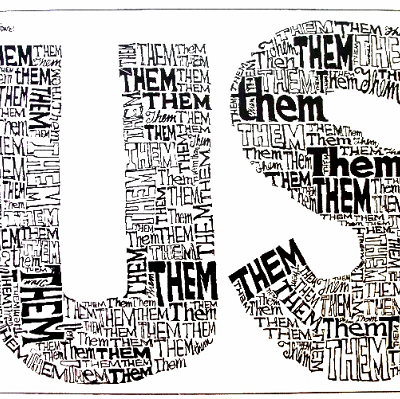The news has been chock-full of distressing stories about racism and the harassment and violence that have resulted from it. A new awareness has dawned for many of us:
We must acknowledge the reality and impact of racism and prejudice across several groups, and we must act when harassment and violence happen against others.
To fulfill our requirement to be present and supportive to our fellows, something I’m terming active humanity, we must educate ourselves and be prepared to act.
One important form of action is bystander intervention. Hollaback!, a global, people-powered movement to end harassment — in all its forms, provides multiple bystander intervention trainings to address:
- Anti-Asian/American and xenophobic harassment
- Police sponsored violence and anti-black racist harassment
- Gender-biased street harassment
- Anti-LGBTQ+ harassment
- and others
Hollaback!’s 5D’s to responding as a bystander:
- Distract: Take an indirect approach to de-escalate the situation.
- Delegate: Get help from someone else.
- Document: Take a video of the incident.
- Delay: After the incident is over, check in with the person who was harassed.
- Direct: Speak up about the harassment. Be firm and clear. Assess your safety first.
As a society, we have finally focused more on the distressing inequities and fatalities of being black in America. That focus has been necessary, and it does not have to be at the expense of acknowledging and supporting other targeted groups.
One of our team members at ROI who is Asian American posted a touching and personal appeal on our internal collaboration platform, and that person has given me permission to share it:
“An issue that has been weighing heavily on me for the past couple weeks is the rise in violence against Asian Americans, especially elderly Asian Americans. These hate crimes have been violent, unprovoked and even fatal. It has taken me a moment to write this post because of how truly disturbed I am – trying to find the time and emotional space to dive into such a daunting and complex issue. In every security camera video I watch, one after another, it breaks my heart as I see Asian Americans being attacked – people just going for their morning walk, people who could be my parents or grandparents.
Being antiracist includes acknowledging the Asian American experience, which is incredibly diverse and complex.
- Although hate crimes against Asian Americans have jumped 1900% in NYC this year, Asian Americans are the third most racially targeted group following Black Americans and Jewish Americans; and, according to a recent Harris poll, 75% of Asian Americans fear increased hate and discrimination; despite these statistics, mainstream media has not been widely covering the increase in violence against Asian Americans.
- For far too long, Asian Americans have been told that we are the model minority, and we have proximity to whiteness, which is a dangerous excuse to mean that violence against Asian Americans is not considered racist. The model minority concept is a harmful myth, created by our oppressors to pit us against other racial groups, and it minimizes and dismisses this violence.
- Although attacks both physical and verbal against Asian Americans have increased during the pandemic amidst inflammatory racist rhetoric from the past administration, racism against Asian Americans did not start with COVID-19. The U.S. has a long history of racism against Asian Americans and Asian immigrants.
- Asian Americans have long struggled to find their footing in mainstream conversations about race. A quote from the actor Steven Yeun that resonated with me is, “Sometimes I wonder if the Asian American experience is what it’s like when you’re thinking about everyone else, but no one is thinking about you.”
- It is important to acknowledge the rise in hate crimes without perpetuating racist narratives about other people of color or pitting any groups against each other. It should not be “you vs. me,” it should be “us vs. hate.”
More reading:
- Adweek, My People Are Dying in Silence—and I’m Here With a Megaphone – impactful op-ed by a Facebook executive
- SF Chronicle Editorial Board, Bay Area’s anti-Asian violence requires a concerted response
- New York Times, A Tense Lunar New Year for the Bay Area After Attacks on Asian-Americans
- Minor Feelings: An Asian American Reckoning by Cathy Park Hong – a rare book about the complexities of the Asian American experience. I loved this book because it is a thought-provoking and unique mix of memoir and nonfiction essay.”
I am grateful to this team member and others who have courageously shared their personal experiences and struggles around the topic of racism. The more we hear the more we know. The more we know the better we can be.
Thank you for taking the time to honor it,
Barbara Fagan-Smith
CEO, ROI
Chief Catalyst, Living ROI








